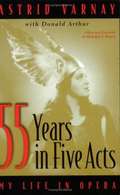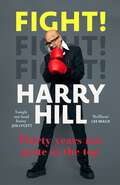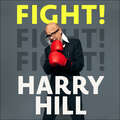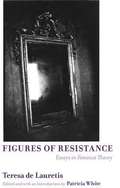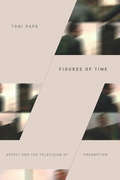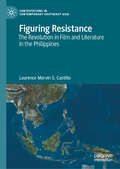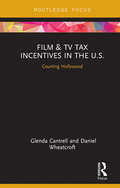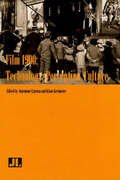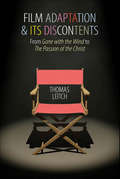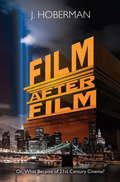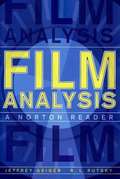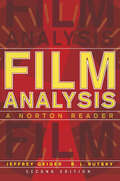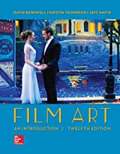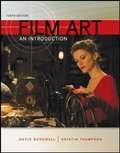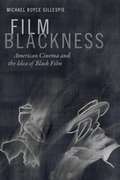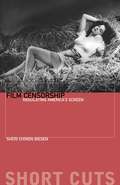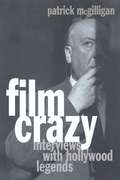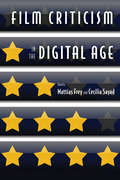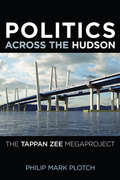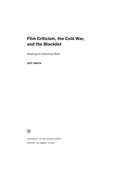- Table View
- List View
Fifty-five Years in Five Acts: My Life in Opera
by Astrid Varnay Donald ArthurFor Astrid Varnay, opera was the family business. The daughter of coloratura soprano Mária Jávor and dramatic tenor Alexander Várnay, she literally grew up backstage at the opera. Vocally and musically trained by her mother and mentor (and later husband) Hermann Weigert, she was just twenty-three years old when she made her unofficial debut at the Metropolitan Opera as a last-minute replacement for the suddenly ill Lotte Lehmann. Varnay's critically acclaimed performance as Sieglinde in Die Walküre catapulted her into the limelight. Varnay reflects on her remarkable life in opera, discussing her signature roles and performances, vocal preparation and technique, interpretive acting style, and her seamless transition from leading soprano to character roles, including her switch from Elektra to Klytemnästra in Strauss's Elektra. Her engaging and witty memoir is filled with frank, often critical, observations about many of the most significant vocal artists, conductors, and directors of the twentieth century. She describes her lifelong friendship with operatic idol Kirsten Flagstad, the years at the Met and conflicts with Rudolf Bing, her appearances at the Bayreuth and Salzburg Festivals, and her artistic rift with Herbert von Karajan.<P><P> This book is also listed in libraries as "55 Years in Five Acts: My Life in Opera"
Fight!: Thirty Years Not Quite at the Top
by Harry Hill'The funniest man in the world has written the funniest book in the world.' DAVID WALLIAMS'A brilliant insight in to what it takes to go from regular funny bloke to one of the best stand ups I've ever seen.' LEE MACK'Proper laugh-out-loud funny, fascinating, and doubles up as probably the best book of advice on how to be a comedian I've ever read. A must for anyone who's interested in the business of laughter.' JOE LYCETTFrom a childhood spent making smoke bombs, killing wasps and carving soap in 70s Kent, Harry Hill then found himself in charge of hundreds of sick people as a junior doctor. Out of his depth and terrified, he chucked it all in to pursue his dream of becoming a stand-up comedian. Battling his way through the 90s Comedy circuit he quickly rose to become a household name and one of the UK's most celebrated comics, almost making it to the top of the showbiz tree . . .From being chased around a car park by an angry heckler, getting fired from Capital Radio and watching every episode of Freaky Eaters, to a bizarre assassination attempt and cutting up Simon Cowell's trousers, Harry takes an honest and hilarious look at the ups and downs of his life and career through the lens of what didn't go right.He shares his secrets on how to be a great comedian, finding joy in failure and creativity in struggle, whilst never forgetting that life is short . . .
Fight!: Thirty Years Not Quite at the Top
by Harry Hill'The funniest man in the world has written the funniest book in the world.' DAVID WALLIAMS'A brilliant insight in to what it takes to go from regular funny bloke to one of the best stand ups I've ever seen.' LEE MACK'Proper laugh-out-loud funny, fascinating, and doubles up as probably the best book of advice on how to be a comedian. A must for anyone who's interested in the business of laughter.' JOE LYCETTFrom a childhood spent making smoke bombs, killing wasps and carving soap in 70s Kent, Harry Hill then found himself in charge of hundreds of sick people as a junior doctor. Out of his depth and terrified, he chucked it all in to pursue his dream of becoming a stand-up comedian. Battling his way through the 90s Comedy circuit he quickly rose to become a household name and one of the UK's most celebrated comics, almost making it to the top of the showbiz tree . . .From being chased around a car park by an angry heckler, getting fired from Capital Radio and watching every episode of Freaky Eaters, to a bizarre assassination attempt and cutting up Simon Cowell's trousers, Harry takes an honest and hilarious look at the ups and downs of his life and career through the lens of what didn't go right.He shares his secrets on how to be a great comedian, finding joy in failure and creativity in struggle, whilst never forgetting that life is short . . .What readers are saying about Fight!'Hilarious... recommended unreservedly' *****'Lots of laughs and memories of days gone by' *****'A great book... I could not put it down' *****'Beautifully written and great fun' *****(P) 2021 Hodder & Stoughton Limited
Fight!: Thirty Years Not Quite at the Top
by Harry HillA TIMES BEST COMEDY BOOK OF 2021'The funniest man in the world has written the funniest book in the world' DAVID WALLIAMS'A brilliant insight into what it takes to go from regular funny bloke to one of the best stand-ups I've ever seen' LEE MACK'Proper laugh-out-loud funny, fascinating, and...a must for anyone who's interested in the business of laughter' JOE LYCETTAfter a childhood spent making smoke bombs, killing wasps and carving soap in 70s Kent, Harry Hill then found himself in charge of hundreds of sick people as a junior doctor. Out of his depth and terrified, he chucked it all in to pursue his dream of becoming a stand-up comedian. Battling his way through the 90s comedy circuit he quickly rose to become a household name and one of the UK's most celebrated comics, almost making it to the top of the showbiz tree...From being chased by an angry heckler and getting fired from Capital Radio to a bizarre assassination attempt and cutting up Simon Cowell's trousers, Harry takes an honest and hilarious look at the ups and downs of his life and career, finding joy in failure and creativity in struggle, whilst never forgetting that life is short.
Fighting for Air: In the Trenches with Television News
by Liz TrottaLiz Trotta traces her career from the early days of broadcast news to the slick superficiality of today. The first female television correspondent in Vietnam, Trotta tells the searing truth about being a woman in a male-dominated industry and recounts many of her most fascinating stories, from the scandal of Chappaquiddick to the campaign trail of George Bush.
Figures of Resistance: Essays in Feminist Theory
by Patricia White Teresa De LauretisThe changing face of feminist discourse as reflected by the career of one of its preeminent scholars Figures of Resistance brings together the unpublished lectures and little-seen essays of internationally renowned theorist Teresa de Lauretis, spanning over twenty years of her finest work. Thirty years after the height of feminist theory, this collection invites us to reflect on the history of feminism and take a hard look at where it stands today. Selected essays include "Sexual Indifference and Lesbian Representation," "The Lure of the Mannish Lesbian," "Eccentric Subjects," "Habit Changes," "The Intractability of Desire," and the unpublished article "Figures of Resistance." An introduction from feminist film scholar Patricia White provides an overview of the development of de Lauretis's thought and of feminist theory over past decades.
Figures of Time: Affect and the Television of Preemption (Thought in the Act)
by Toni PapeMany contemporary television series from Modern Family to How to Get Away with Murder open an episode or season with a conflict and then go back in time to show how that conflict came to be. In Figures of Time Toni Pape examines these narratives, showing how these leaps in time create aesthetic experiences of time that attune their audiences to the political doctrine of preemption—a logic that justifies preemptive action to nullify a perceived future threat. Examining questions of temporality in Life on Mars, the political ramifications of living under the auspices of a catastrophic future in FlashForward, and how Damages disrupts the logic of preemption, Pape shows how television helps shift political culture away from a model of rational deliberation and representation toward a politics of preemption and conformity. Exposing the mechanisms through which television supports a fear-based politics, Pape contends, will allow for the rechanneling of television's affective force into building a more productive and positive politics.
Figuring Resistance: The Revolution in Film and Literature in the Philippines (Contestations in Contemporary Southeast Asia)
by Laurence Marvin CastilloThis book examines how fiction films and novels represent the communist-led national democratic (NatDem) revolution in the Philippines. Produced aboveground decades after the Philippines’ historic transition from dictatorship to elite democracy, these NatDem fictions depict how the communist movement in the Philippines confronted various national and global changes, tracking revolutionary experiences amidst the ascendancy of neoliberalism, the continuation of counterinsurgency and the emergence of non-Marxist social movements and discourses. Figuring Resistance studies how fictions portray the tenacity of political commitment among revolutionaries engaged in the revolution's manifold history of crises, setbacks, and persistence. It illuminates the crucial role played by cultural work in creating and nourishing an oppositional public sphere, where the experiential makings of the liberation struggle in the Third World can be imagined.
Film & TV Tax Incentives in the U.S.: Courting Hollywood (Routledge Studies in Media Theory and Practice)
by Glenda Cantrell Daniel WheatcroftEntertainment tax incentives are one of the greatest tools in the arsenal of filmmaking. They pay a portion of production expenditures back to the filmmaker, while creating powerful economic engines for the states who implement them properly. They are high in the list of considerations for executives to sign off before a movie receives the go-ahead for production, even to the point of dictating the location of where a production is filmed. Yet, they are misunderstood by the filmmakers who use them, the politicians who create them, the economists who measure them, and even the scholars who study them. This book puts all the pieces together in a comprehensive look at how the entertainment industry works, how it uses incentives, and how incentives can benefit a filmmaker – or a state.
Film 1900: Technology, Perception, Culture
by Klaus Kreimeier Annemone LigensaThe current digital revolution has sparked a renewed interest in the origins and trajectory of modern media, particularly in the years around 1900 when the technology was rapidly developing. This collection aims to broaden our understanding of early cinema as a significant innovation in media history. Joining traditional scholarship with fresh insights from a variety of disciplines, this book explains the aesthetic and institutional characteristics in early cinema within the context of the contemporary media landscape. It also addresses transcultural developments such as scientific revolutions, industrialization, urbanization, and globalization, as well as differing attitudes toward modernization. Film 1900 is an important reassessment of early cinema's position in cultural history.
Film Adaptation and Its Discontents: From Gone with the Wind to The Passion of the Christ
by Thomas LeitchMost books on film adaptation—the relation between films and their literary sources—focus on a series of close one-to-one comparisons between specific films and canonical novels. This volume identifies and investigates a far wider array of problems posed by the process of adaptation. Beginning with an examination of why adaptation study has so often supported the institution of literature rather than fostering the practice of literacy, Thomas Leitch considers how the creators of short silent films attempted to give them the weight of literature, what sorts of fidelity are possible in an adaptation of sacred scripture, what it means for an adaptation to pose as an introduction to, rather than a transcription of, a literary classic, and why and how some films have sought impossibly close fidelity to their sources. After examining the surprisingly divergent fidelity claims made by three different kinds of canonical adaptations, Leitch's analysis moves beyond literary sources to consider why a small number of adapters have risen to the status of auteurs and how illustrated books, comic strips, video games, and true stories have been adapted to the screen. The range of films studied, from silent Shakespeare to Sherlock Holmes to The Lord of the Rings, is as broad as the problems that come under review.
Film After Film
by J. HobermanOne of the world's most erudite and entertaining film critics on the state of cinema in the post-digital--and post-9/11--age. This witty and allusive book, in the style of classic film theorists/critics like André Bazin and Siegfried Kracauer, includes considerations of global cinema's most important figures and films, from Lars von Trier and Zia Jiangke to WALL-E, Avatar and Inception.
Film Analysis: A Norton Reader
by Jeffrey Geiger R. L. RutskyContributors examine American, European, and international films as artifacts of their times, as indicators of changes and innovations in ways of thinking about and approaching reality, and as influences upon each other and on the viewer.
Film Analysis: A Norton Reader (Second Edition)
by Jeffrey Geiger R. L. RutskyFifty essays on fifty films—by a who’s-who of film studies. Film Analysis offers concise analyses of fifty diverse and historically significant films—each written exclusively for the text by a leading scholar. Written with the undergraduate in mind, the essays are clear, readable, and great models for students to follow in helping them to hone their own writing. The Second Edition includes six new essays, a new, detailed guide to writing film analysis, and an extensive, up-to-date glossary of critical film terms. This purchase offers access to the digital ebook only.
Film Art: An Introduction
by Jeff Smith David Bordwell Kristin ThompsonFilm is an art form with a language and an aesthetic all its own. Since 1979, David Bordwell, Kristin Thompson and now, Co-Author, Jeff Smith's Film Art has been the best-selling and most widely respected introduction to the analysis of cinema. Taking a skills-centered approach supported by examples from many periods and countries, the authors help students develop a core set of analytical skills that will enrich their understanding of any film, in any genre. In-depth examples deepen students' appreciation for how creative choices by filmmakers affect what viewers experience and how they respond. Film Art is generously illustrated with more than 1,000 frame enlargements taken directly from completed films, providing concrete illustrations of key concepts. Along with updated examples and expanded coverage of digital filmmaking, the twelfth edition of Film Art delivers SmartBook, first and only adaptive reading experience currently available, designed to help students stay focused, maximize study time and retain basic concepts.
Film Art: An Introduction (10th Edition)
by David Bordwell Kristin ThompsonFilm is an art form with a language and an aesthetic all its own. Since 1979, David Bordwell and Kristin Thompson's Film Art has been the best-selling and most widely respected introduction to the analysis of cinema. Taking a skills-centered approach supported by examples from many periods and countries, the authors help students develop a core set of analytical skills that will enrich their understanding of any film, in any genre. In-depth examples deepen students' appreciation for how creative choices by filmmakers affect what viewers experience and how they respond.
Film Blackness: American Cinema and the Idea of Black Film
by Michael Boyce GillespieIn Film Blackness Michael Boyce Gillespie shifts the ways we think about black film, treating it not as a category, a genre, or strictly a representation of the black experience but as a visual negotiation between film as art and the discursivity of race. Gillespie challenges expectations that black film can or should represent the reality of black life or provide answers to social problems. Instead, he frames black film alongside literature, music, art, photography, and new media, treating it as an interdisciplinary form that enacts black visual and expressive culture. Gillespie discusses the racial grotesque in Ralph Bakshi's Coonskin (1975), black performativity in Wendell B. Harris Jr.'s Chameleon Street (1989), blackness and noir in Bill Duke's Deep Cover (1992), and how place and desire impact blackness in Barry Jenkins's Medicine for Melancholy (2008). Considering how each film represents a distinct conception of the relationship between race and cinema, Gillespie recasts the idea of black film and poses new paradigms for genre, narrative, aesthetics, historiography, and intertextuality.
Film Censorship: Regulating America's Screen (Short Cuts)
by Sheri Chinen BiesenFilm Censorship is a concise overview of Hollywood censorship and efforts to regulate American films. It provides a lean introductory survey of U.S. cinema censorship from the pre-Code years and classic studio system Golden Age—in which film censorship thrived—to contemporary Hollywood. From the earliest days of cinema, movies faced controversy over screen images and threats of censorship. This volume draws extensively on primary research from motion picture archives to unveil the fascinating behind-the-scenes history of cinema censorship and explore how Hollywood responded to censorial constraints on screen content in a changing American cultural and industrial landscape.This primer on American film censorship considers the historical evolution of motion-picture censorship in the United States spanning the Jazz Age Prohibition era, lobbying by religious groups against Hollywood, industry self-censorship for the Hays Office, federal propaganda efforts during wartime, easing of regulation in the 1950s and 1960s, the MPAA ratings system, and the legacy of censorship in later years. Case studies include The Outlaw, The Postman Always Rings Twice, Scarface, Double Indemnity, Psycho, Bonnie and Clyde, Midnight Cowboy, and The Exorcist, among many others.
Film Comedy and the American Dream (Routledge Advances in Film Studies)
by Zach SandsFilm Comedy and the American Dream is an examination of national identity in the era of the American superpower as projected in popular comedic films that center on issues of upward mobility. It is the story of what made audiences laugh and why, and what this says about the changing shape of the American Dream from the end of the Second World War through the first part of the twenty-first century. Through a combination of narrative and thematic analyses of popular comedic films, contextualized within a dynamic historical framework, the book traces the increasing disillusionment with this central ideology in the face of multiple forms of systemic exclusion. It argues that film comedy is a major component of the discourse surrounding the American Dream because these movies often evoke humor by highlighting the incongruities that exist between the ideals that define this nation versus the actual lived experiences of its citizens.
Film Crazy
by Patrick McgilliganIn Film Crazy, McGilligan shares some of his fascinating interviews with screen luminaries from his salad days as a young journalist working the Hollywood beat. He rides the presidential campaign bus with Ronald Reagan, visits Alfred Hitchcock on the set of the Master of Suspense's last film, "Family Plot," meets George Stevens at the Brown Derby and conducts the last interview with the director of "Shane" and "Giant." Other interview subjects captured for posterity include rough-and-ready pioneer directors William Wellman and Raoul Walsh; likeable actor Joel McCrea; actress - and the only female director of her era - Ida Lupino; French legend Rene Clair; and lowly-contract-writer-turned-studio-mogul Dore Schary. Film Crazy is a must for film students, scholars and professionals.
Film Criticism in the Digital Age
by Greg Taylor Maria San Filippo Noah Tsika Nick James Mattias Frey Cecilia Sayad Giacomo Manzoli Daniel Mcneil Outi Hakola Anne Hurault-Paupe Thomas Elsaesser Paolo Noto Armond White Jasmina KallayOver the past decade, as digital media has expanded and print outlets have declined, pundits have bemoaned a "crisis of criticism" and mourned the "death of the critic." Now that well-paying jobs in film criticism have largely evaporated, while blogs, message boards, and social media have given new meaning to the saying that "everyone's a critic," urgent questions have emerged about the status and purpose of film criticism in the twenty-first century. In Film Criticism in the Digital Age, ten scholars from across the globe come together to consider whether we are witnessing the extinction of serious film criticism or seeing the start of its rebirth in a new form. Drawing from a wide variety of case studies and methodological perspectives, the book's contributors find many signs of the film critic's declining clout, but they also locate surprising examples of how critics--whether moonlighting bloggers or salaried writers--have been able to intervene in current popular discourse about arts and culture. In addition to collecting a plethora of scholarly perspectives, Film Criticism in the Digital Age includes statements from key bloggers and print critics, like Armond White and Nick James. Neither an uncritical celebration of digital culture nor a jeremiad against it, this anthology offers a comprehensive look at the challenges and possibilities that the Internet brings to the evaluation, promotion, and explanation of artistic works.
Film Criticism in the Digital Age
by Mattias Frey Cecilia SayadOver the past decade, as digital media has expanded and print outlets have declined, pundits have bemoaned a "crisis of criticism" and mourned the "death of the critic. " Now that well-paying jobs in film criticism have largely evaporated, while blogs, message boards, and social media have given new meaning to the saying that "everyone's a critic," urgent questions have emerged about the status and purpose of film criticism in the twenty-first century. In Film Criticism in the Digital Age, ten scholars from across the globe come together to consider whether we are witnessing the extinction of serious film criticism or seeing the start of its rebirth in a new form. Drawing from a wide variety of case studies and methodological perspectives, the book's contributors find many signs of the film critic's declining clout, but they also locate surprising examples of how critics--whether moonlighting bloggers or salaried writers--have been able to intervene in current popular discourse about arts and culture. In addition to collecting a plethora of scholarly perspectives, Film Criticism in the Digital Age includes statements from key bloggers and print critics, like Armond White and Nick James. Neither an uncritical celebration of digital culture nor a jeremiad against it, this anthology offers a comprehensive look at the challenges and possibilities that the Internet brings to the evaluation, promotion, and explanation of artistic works.
Film Criticism, the Cold War, and the Blacklist
by Jeff SmithFilm Criticism, the Cold War, and the Blacklist examines the long-term reception of several key American films released during the postwar period, focusing on the two main critical lenses used in the interpretation of these films: propaganda and allegory. Produced in response to the hearings held by the House Committee on Un-American Activities (HUAC) that resulted in the Hollywood blacklist, these films' ideological message and rhetorical effectiveness was often muddled by the inherent difficulties in dramatizing villains defined by their thoughts and belief systems rather than their actions. Whereas anti-Communist propaganda films offered explicit political exhortation, allegory was the preferred vehicle for veiled or hidden political comment in many police procedurals, historical films, Westerns, and science fiction films. Jeff Smith examines the way that particular heuristics, such as the mental availability of exemplars and the effects of framing, have encouraged critics to match filmic elements to contemporaneous historical events, persons, and policies. In charting the development of these particular readings, Film Criticism, the Cold War, and the Blacklist features case studies of many canonical Cold War titles, including The Red Menace, On the Waterfront, The Robe, High Noon, and Invasion of the Body Snatchers.
Film Dialogue
by Ed. Jeff JaeckleFilm Dialogue is the first anthology in film studies devoted to the topic of language in cinema, bringing together leading and emerging scholars to discuss the aesthetic, narrative, and ideological dimensions of film speech that have largely gone unappreciated and unheard. Consisting of thirteen essays divided into three sections: genre, auteur theory, and cultural representation, Film Dialogue revisits and reconfigures several of the most established topics in film studies in an effort to persuade readers that "spectators" are more accurately described as "audiences," that the gaze has its equal in eavesdropping, and that images are best understood and appreciated through their interactions with words. Including an introduction that outlines a methodology of film dialogue study and adopting an accessible prose style throughout, Film Dialogue is a welcome addition to ongoing debates about the place, value, and purpose of language in cinema.
Film Dialogue
by Jeff JaeckleFilm Dialogue is the first anthology in film studies devoted to the topic of language in cinema, bringing together leading and emerging scholars to discuss the aesthetic, narrative, and ideological dimensions of film speech.
